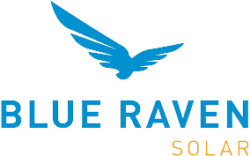Tesla’s solar roof is much more expensive than traditional solar panels, but it may be worth the cost if you don’t like the idea of visible panels on your roof. The barely there look of Tesla’s solar shingles will run you up to 75% more than conventional panels, averaging around $64,000 for a 10-kilowatt system.* We’ve detailed the factors that impact this price and the associated costs below.
*Cost data in this article was sourced from Energy Sage.
What Is a Tesla Solar Roof?
The Tesla solar roof is a building-integrated photovoltaic (BIPV) roofing system first introduced in 2016 by Tesla CEO Elon Musk. It consists of glass tiles embedded with photovoltaic cells that absorb the sun’s energy to generate electricity. The system features a high-tech but sleek design typical of Tesla. You can buy accessories to enhance the roof’s effectiveness.
The Tesla solar roof provides all the usual benefits of going solar, but with a key difference. Traditional solar panels are mounted on top of your roof and are visibly noticeable. Not all homeowners like what this does to their home’s curb appeal. Tesla solar roof tiles are designed to look like conventional roof shingles or tiles, so you get the benefits of solar panels without the clunky look. The tiles look like normal roof shingles from a distance.
Tesla Solar Roof Cost and Payment Options
The cost of a Tesla solar roof includes four types of equipment: energy-producing tiles, nonenergy-producing tiles, a Tesla solar inverter, and a Tesla Powerwall battery.
You can calculate your estimated Tesla solar roof cost by entering your address in Tesla’s design tool and selecting the solar roof option. We found the tool to be straightforward and easy to use. We calculated the cost of various system sizes using the average price for a Tesla solar roof of $6.40 per watt. These prices are before applying any solar incentives.
| Home Square Footage | System Size in kW | Average Solar Roof Cost |
|---|---|---|
| 1,000 | 6 | $38,400 |
| 2,000 | 12 | $76,800 |
| 3,000 | 18 | $115,200 |
Tesla offers two payment options for its solar roof: cash purchase and loan. Both options make you the owner of your solar shingles and qualify you for cost-saving solar incentives. You also get a 25-year warranty with either option. Payment is due in full at inspection if you choose to pay in cash. If you opt for a solar loan, the first payment is due 35 days after your system is deemed operational.
Cost Considerations
You’ll need to account for more than your home size to determine your total solar roof cost. Here are some other factors that can impact your price, as well as other fees to keep in mind.
Roof Complexity
The more difficult or dangerous your roof is to work on, the higher the cost. A single-level roof with a low pitch and no major obstructions is the most ideal and therefore the cheapest. A multilevel roof with a steep pitch and challenging obstructions can increase your price by several thousand dollars.
Roof Replacement
Tesla requires its solar roof systems to be installed on top of a single-layer, three-tab asphalt or composite shingle roof that’s less than 20 years old. If your existing roof doesn’t meet that criteria, the roof must be replaced before installing solar shingles. Roof replacement costs an average of $10,000.
Tesla Powerwall Cost
You must purchase Tesla’s integrated battery system, called the Powerwall, along with your solar roof. Your Powerwall battery will collect excess energy and use it to power your home during times when your shingles aren’t working, such as at night or during a power outage. A Powerwall battery can’t power all the devices in your home, so it’s likely you’ll need multiple batteries for all of your appliances. The Tesla Powerwall costs approximately $14,200 per battery, though you get a discounted rate if you purchase multiple batteries. See our guide to the cost of a Tesla Powerwall.
Solar Tax Incentives
Solar incentives are available at the federal, state, and local levels. State and local incentives vary by location, but the federal solar tax credit is available nationwide. This federal tax credit allows homeowners to receive a deduction on their federal taxes equal to 30% of their solar system installation cost.
This credit was introduced in 2005 as part of the Energy Policy Act and was supposed to expire in 2007, but Congress has extended it multiple times. In August 2022, Congress passed the Inflation Reduction Act, which extends the 30% tax credit through 2032. The rate will drop to 26% in 2033 and 22% in 2034. It will end in 2035 unless Congress renews it again.
Is a Tesla Solar Roof Worth It?
The Tesla solar roof may be worth it if you want solar power but don’t like the clunky look of panels. If you’re unsure whether it makes financial sense for you, determine if you need or will soon need a roof replacement. Your roof must be in good condition and fit Tesla’s criteria to qualify for installation. If your roof needs replacing before you can move forward, it may not be worth such a large investment.
Going solar should ultimately save you money, not be a financial burden. See our list of the best solar panels if Tesla’s solar roof isn’t the right fit.
Our Conclusion
The Tesla Solar Roof looks sleek and modern and comes with a 25-year warranty, but it’s significantly more expensive than conventional solar panels. Traditional solar panels may be a better option if you want to start using solar energy but don’t want to overextend your wallet. Our list of the best solar companies can help you find a reputable provider if the Tesla Solar Roof isn’t a good match.
FAQ About Tesla Solar Roofs
Our Rating Methodology
The This Old House Reviews Team is committed to providing comprehensive and unbiased reviews to our readers. This means earning your trust through transparent reviews and data to back up our ratings and recommendations. Our rating system for solar providers is on a 100-point system based on five factors:
- Payment options (40 points): Options include purchase, loan, lease, and Power Purchase Agreements (PPAs). Companies receive points for each of the four options they provide.
- Solar services (30 points): Does the company provide in-house installation of solar panels and battery backups? Can the company also monitor energy production and perform energy-efficiency audits to ensure system performance? The more options available, the higher the score.
- Warranty options (10 points): The success of a residential solar system depends on the workmanship, performance guarantees, and length of product coverage. The more warranties a company offers, the higher the score it receives.
- State availability (10 points): We award the most points to companies with the broadest service area and state availability.
- Reputation (10 points): We factor in how the Business Better Bureau (BBB) scores each company. We deduct points for any alerts or pending lawsuits.
Total scores are divided by 20 for a final 5-point rating scale.
To share feedback or ask a question about this article, send a note to our Reviews team at reviews@thisoldhousereviews.com.



